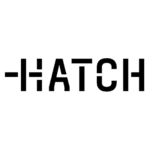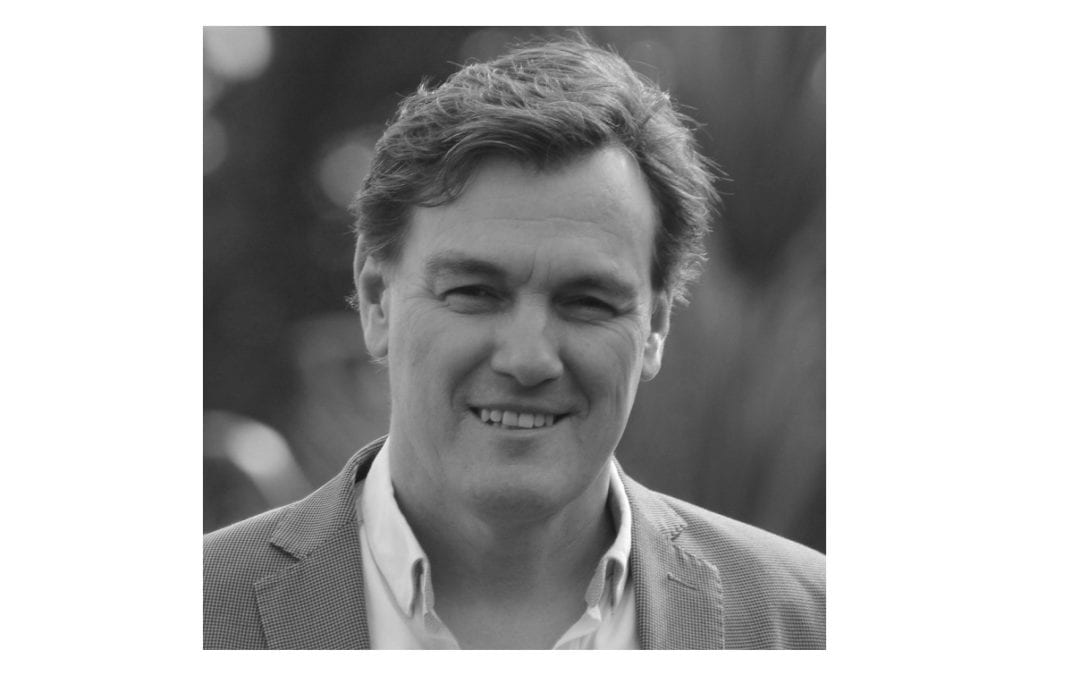
Why do more women (than men) choose ethical investment? John Berry, Pathfinder Asset Management
More women than men choose ethical investments. Why? John Berry is the founder and CEO of Pathfinder Asset Management, an investment fund and manager of Caresaver, an ethical Kiwsaver plan launched last year. Pathfinder believes that doing good pays better bucks. That is, investors who consider the environmental, social and governance impact of their investments can improve returns not just for the planet but also for investors. So does it? And what makes a banker become such an ethical campaigner? And how come women get this better than men?
Hear the Podcast Here:
Visit Pathfinder here: https://www.path.co.nz/

New Sir Bob Charles Biography
Our hosts conduct an extended conversation with Geoff Saunders, the author of the first comprehensive biography of New Zealand’s greatest golfer, Sir Bob Charles, and to review the book and find out why it took 15 years to complete.
Listen now:

Housing Boom – Are Foreign Buyers still Active? / Geoff Caradus
Are foreign buyers behind NZ’s latest housing boom?
The latest report out of the Real Estate Institute shows New Zealand’s median house price was 20% higher last month than the same time last year, while in Auckland the median price has now shot north of $1 million. Naturally, for the many New Zealanders trying to enter the housing market this has been a real cause for concern over the past few months.
This concern has evolved into all out rage on the public stage, as frustrated home buyers look for somewhere to focus the blame. These are all ‘demand-side distractions’, when the core issue is in fact, supply. The blame-game continues to play out though which of course ropes in the Prime Minister, the Reserve Bank, over-anxious first home buyers, and property investors, just to name a few.
But for foreign buyers, the group of cashed up internationals usually at the centre of these media storms, the public has been rather quiet. That’s because in 2018, New Zealand introduced the Overseas Investment Amendment Bill, which virtually cuts out foreign buyers of the residential market.
The ban was borne out of this public sentiment as the public searched for someone to blame. Was there ever a problem here – we’ll never be sure as the data collected was never clear enough from the start.
“There was a perceived problem that there were too many foreign buyers on the market. There were anecdotal stories in the news of buying a home in Auckland and being surrounded by foreign people,” said Geoff Caradus, a lawyer at Pitt & Moore.
So has this ban, intended to temper New Zealand’s surging housing market, been successful?
“It’s been very successful in stopping overseas people buying residential property in New Zealand to the extent it was intended to be,” however, “the devil is in the detail with this sort of stuff.”
What makes someone an overseas buyer?
An overseas person is defined as someone who does not fall in the below 4 categories:
- Have a resident’s class visa,
- Have been in New Zealand for at least the last year,
- During the year in New Zealand you have spent at least 183 days in the country,
- And you’re a tax resident in New Zealand
This covers the individuals, but it also extends to the entities they own and control. As lawmakers know, higher worth individuals often have a myriad of trusts and organisations in their name. Could it be possible these entities have been used to ‘hide’ the true origin of the purchaser or their money?
“The people who write these laws know all that stuff, they aren’t idiots. So they made the threshold that if 25% of the entity is owned or controlled by an overseas person, then the entity itself will be considered an overseas person.”
A wealthy yet disgruntled Trump supporter looking for greener pastures, may find the first three controls fine, but you lost them at the 4th.
“We talk with people about options for buying land and the conversation is going well, until we tell them about them getting to the tax residency,” laughs Caradus.
Caradus and his organization will receive around a request every month from overseas people looking for loopholes for these tough new laws.
“The overseas investment office has been very active in pursuing violations of this law,” said Caradus.
Lawyers and real estate agents are all equally obliged under the bill as well as new AML (anti money laundering) restrictions, so aiding and abetting this kind of behaviour would put any professional squarely in harm’s way.
This nevertheless, doesn’t discount a less scrupulous lawyer than Geoff, taking the lost client instead, right?
“If you’ve got someone lying to their lawyer, lying to their real estate agents and risking the millions of dollar fines that come with the act, I wouldn’t say that means the act has failed. People will do all kinds of criminal stuff and you can’t stop them, but most people will listen to the law and most people will obey,” concludes Caradus.
Two years later and the amendments to the law have proven themselves to be watertight in what they set out to do — staving off overseas investment into residential property. However, with house prices continuing to go through the roof, people may call into question how meaningful these changes ever were in the first place.
It’s fascinating, when contemplating the success of this legislation, that we didn’t really even know the extent of the problem we were trying to solve in the first place. Either way, it was thought that by eliminating this group, we’d significantly reduce demand for New Zealand homes. Still, as long as the discussion keeps the focus on demand-side culprits, the real culprit (lack of supply) can go on unnoticed.
The free market will always respond to rising demand (that is, if a market is ever truly free). We’re quick to blame the free market when things aren’t working, but we often fail to realise that perhaps the reason why it’s not working, is because it’s been neutered by red-tape. Who’s to blame for the rising housing market again?
___________________________________________________________________
Hatch and NZ Everyday Investor – Investor Challenge!
Start investing regularly. It’s not about picking stocks, it’s all about investing regularly towards an objective! The goal of the challenge is to get you to start making regular contributions to your investments, to build long term wealth.
Now to help you with this challenge, Hatch is going to give one lucky person a $500NZD top-up to their Hatch account. To enter the giveaway, head to:
https://www.hatchinvest.nz/nz-everyday-investor-giveaway
Terms and conditions: https://www.hatchinvest.nz/nz-everyday-investor-ts-and-cs
Just pop down your email address and your goal you have when it comes to investing – that’s right – if you put it out there, it’s more likely to happen.
The challenge will run from Monday 16 November to Monday 30 November, and the winner will be announced on Tuesday 1 December. So don’t put this off – if you’re in a position to do it, click on the link now. If you work for money, put some of it to work for you today – good luck!
__________________________________________________________________
Like what you’ve heard?
You can really help with the success of the NZ Everyday Investor by doing the following:
1- Tell your friends!
2- Write a review on Facebook, or your favourite podcast player
3- Help support the mission of our show on Patreon by contributing here
4- To catch the live episodes, please ensure you have subscribed to us on Youtube:
5- Sign up to our newsletter here
NZ Everyday Investor is on a mission to increase financial literacy and make investing more accessible for the everyday person!
Please ensure that you act independently from any of the content provided in these episodes – it should not be considered personalised financial advice for you. This means, you should either do your own research taking on board a broad range of opinions, or ideally, consult and engage an authorised financial adviser to provide guidance around your specific goals and objectives.
_____________________________________________________________________________

The Next Normal
Paul Spain and Eugene Afanasy (Huawei) discuss changes to work, life, travel and much more – both now and in the years ahead and think about what the Next Normal could look like.
Listen to the Podcast here:
Special thanks to organisations who support innovation and tech leadership in New Zealand by partnering with NZ Tech Podcast:
Umbrellar Connect
Sumo Logic
Vodafone NZ
HP
Spark NZ
Vocus
Gorilla Technology
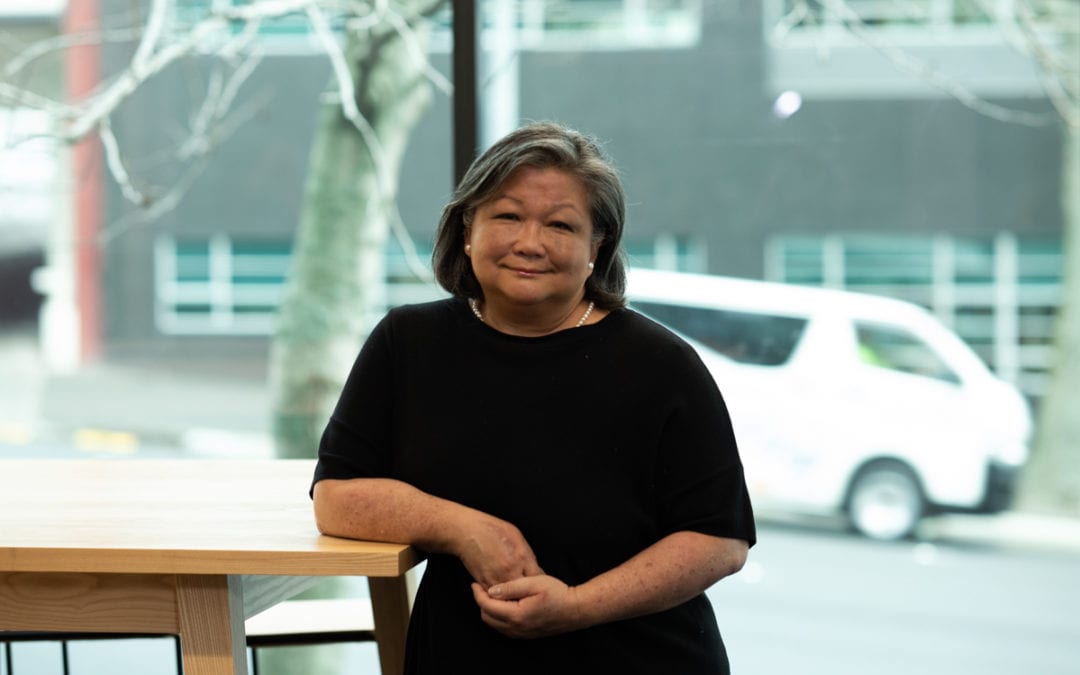
Everyone’s Got to Eat
Connie Clarkson has been cooking food and writing about it for a large part of her life. After operating Auckland’s French Café, contributing to Metro magazine, writing a cookbook and even being a judge, she now is the Head of Commercial Place Operations at Auckland’s Panuku Development. Connie describes her role as the job of a lifetime. At Panuku, she pulls on all her experience and connections she’s made over decades to regenerate spaces like the Auckland Waterfront or Wynyard Quarter and add new life to neighbourhoods, making sure people can eat well no matter where they live.
Connie believes that food is the cornerstone of a great neighbourhood and that cookbooks are history books. “It’s an amazing thing, food. We all have to eat. More than that, food has the power to transcend age, place and wealth to give a voice to our experiences”, says Connie.
In our freewheeling chat we talk about:
- Are cookbooks still relevant?
- The responsibility that comes with writing about food
- Why is food the cornerstone to a great neighbourhood?
- Community markets and why every community needs one
- Food trends – what will stay and what comes next
Listen to the Podcast Here:
My favourite quotes from the episode (and there were many!):
“Cookbooks are about more than the recipes. It is a travel guide. They hold stories about families and friends. They are a record of a neighbourhood. A cookbook is a history book. It’s a record of society. I have a strong instinct that the day of the cookbook is not over yet.”
“There’s a fine line between celebrating food and the people who produce the food and criticizing that food. Social media has made it easy for everyone to give an opinion. When we write about someone else’s dream, we have a huge responsibility as a food writer to do it justice.”
“The community that surrounds the food you eat is as important as the food itself.”
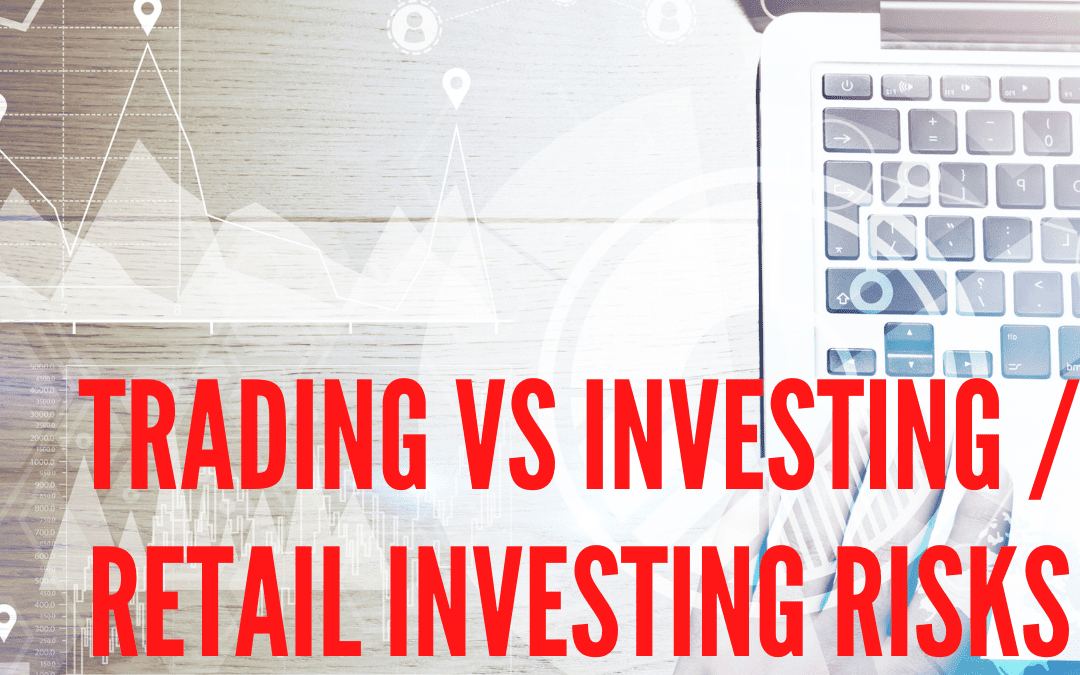
Investing for the long-haul
Hatch is an online investment platform that makes it easier than every, to put your money to work for you. Last time we were joined by Kristen Lunmen and Natalie Ferguson was in Episode 63
In this wide ranging interview Darcy sits down with Natalie Ferguson & Kristen Lunman from Hatch Invest to talk about encouraging good behavior from retail investors, why a Hatch employee’s kid loves him more because he owns Disney shares, and the benefits of planning for a portfolio nosedive.
***Note, for those using the audio only version, Kristen is the Co-founder with the Canadian accent and Natalie is the Head of Product with the Kiwi accent
————
With retail investor mania clearly on the rise, there’s been a widely held opinion from the stiff lipped, long-time investors, that most of these investors are going in blind.
Perhaps this is true from the wider global community led by the likes of Davey Day Trader, but Hatch counts their users outside of this group. Hatch is on a mission to buck the trend of under-informed investors heaping into bad decisions by supporting initiatives that provide independent commentary/education; and it’s been returning dividends.
A recent survey of Hatch users found that a massive 97% of its users self-report having done their research before investing, through a combination of annual reports, analyst reports, and share price trackers.
“Well I think if you compare Hatch with any other investment platform, it’s our education which makes the difference. You get that education, you get that support, you get that community; to make wiser decisions,” said Natalie.
As head of product, Natalie has made a concerted effort to distinguish themselves from the likes of Robinhood in the United States. The retail investing app has seen widespread criticism for using nudge theory — the idea of encouraging behaviors through clever pushes that the podcast covered about a couple of months ago — to lure poorly equipped investors into frequent trading.
“My biggest concern is that the easier that you make something to get in, the easier it is to get out also”, said Darcy.
“We made the browsing experience pretty full on to start to make sure people did the research on what they wanted to invest in, without leading them into making a particular investment.”, Said Natalie
Hatch has intentionally designed the platform with small fees on each transaction, so as not to encourage frequent daily trades. They have also removed celebratory emails after every transaction, instead, they focus on celebrating things like receiving dividends at the end of year.
Passing down financial education
On the cards in the coming weeks, is Hatch’s first foray into investing for kids, which they see as a positive way to build better financial understanding amongst the next generation.
For Kristen, buying her son into Nike, one of his favourite companies, has formed the perfect introduction to investment education.
“It’s such a good way to get them engaged,” said Kristen.
Purposeful investing
One of the biggest lessons that kids and adults alike need to learn as the world navigates a highly uncertain world, is the idea of pre-determining your response to changing circumstances in the market.
“I encourage anyone who is investing anywhere, if things did go up or did drop it’s a really good idea to plan in advance for how you’re going to react,” said Natalie.
Whether it’s written down, spoken to a friend, or drawn on a notebooks somewhere; any investor should have a strong strategy for what happens when investments drop.
Naturally, seeing your important investment freefalling is going to be of concern, but with a coherent strategy in place, investors can feel confident of an eventual rebound.
“If when you look at your portfolio and it’s dropped and it’s the first time you’ve thought about it, you’re not setting yourself up for success,” said Kristen.
___________________________________________________________________
The Challenge!
Start investing regularly. It’s not about picking stocks, it’s all about investing regularly towards an objective! The goal of the challenge is to get you to start making regular contributions to your investments, to build long term wealth.
Now to help you with this challenge, Hatch is going to give one lucky person a $500NZD top-up to their Hatch account. To enter the giveaway, head to:
https://www.hatchinvest.nz/nz-everyday-investor-giveaway
Terms and conditions: https://www.hatchinvest.nz/nz-everyday-investor-ts-and-cs
Just pop down your email address and your goal you have when it comes to investing – that’s right – if you put it out there, it’s more likely to happen.
The challenge will run from Monday 16 November to Monday 30 November, and the winner will be announced on Tuesday 1 December. So don’t put this off – if you’re in a position to do it, click on the link now. If you work for money, put some of it to work for you today – good luck!
__________________________________________________________________
_________________________________________________________________
The NZ Everyday Investor is brought to you in partnership with Hatch. Hatch, let’s you become a shareholder in the world’s biggest companies and funds. We’re talking about Apple and Zoom, Vanguard and Blackrock.
So, if you’re listening in right now and have thought about investing in the US share markets, well, Hatch has given us a special offer just for you… they’ll give you a $20 NZD top-up when you make an initial deposit into your Hatch account of $100NZD or more.
Just go to https://hatch.as/NZEverydayInvestor to grab your top up.
__________________________________________________________________
Like what you’ve heard?
You can really help with the success of the NZ Everyday Investor by doing the following:
1- Tell your friends!
2- Write a review on Facebook, or your favourite podcast player
3- Help support the mission of our show on Patreon by contributing here
4- To catch the live episodes, please ensure you have subscribed to us on Youtube:
5- Sign up to our newsletter here
NZ Everyday Investor is on a mission to increase financial literacy and make investing more accessible for the everyday person!
Please ensure that you act independently from any of the content provided in these episodes – it should not be considered personalised financial advice for you. This means, you should either do your own research taking on board a broad range of opinions, or ideally, consult and engage an authorised financial adviser to provide guidance around your specific goals and objectives.
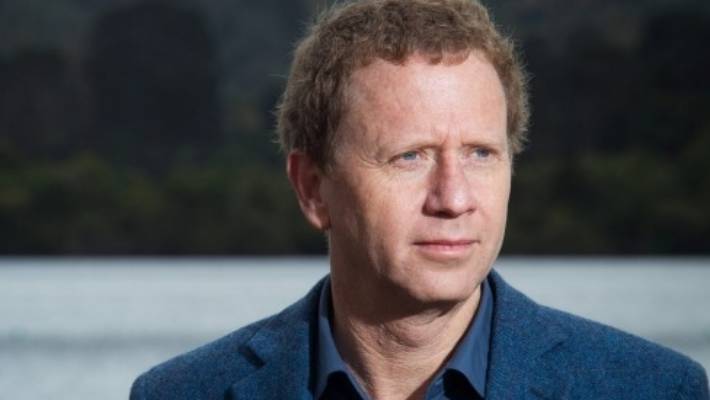
Hey Jacinda: it’s time to walk your talk on climate action. Russel Norman, Greenpeace
With a mandate to rule and all the tools in place, this Labour government has everything it needs reduce New Zealand’s emissions. So, what’s the hold up? Patience child warns Russel executive director of Greenpeace Aotearoa, a former Green party co-leader and two term MP. The seasoned campaigner says we need to give Team Ardern six months to demonstrate how it will turn NZ’s emissions around — that is, six months before the gloves come off. Russel spoke to Vincent about what to expect, how to protest and what keeps him engaged in the task.
Hear the Podcast Here:
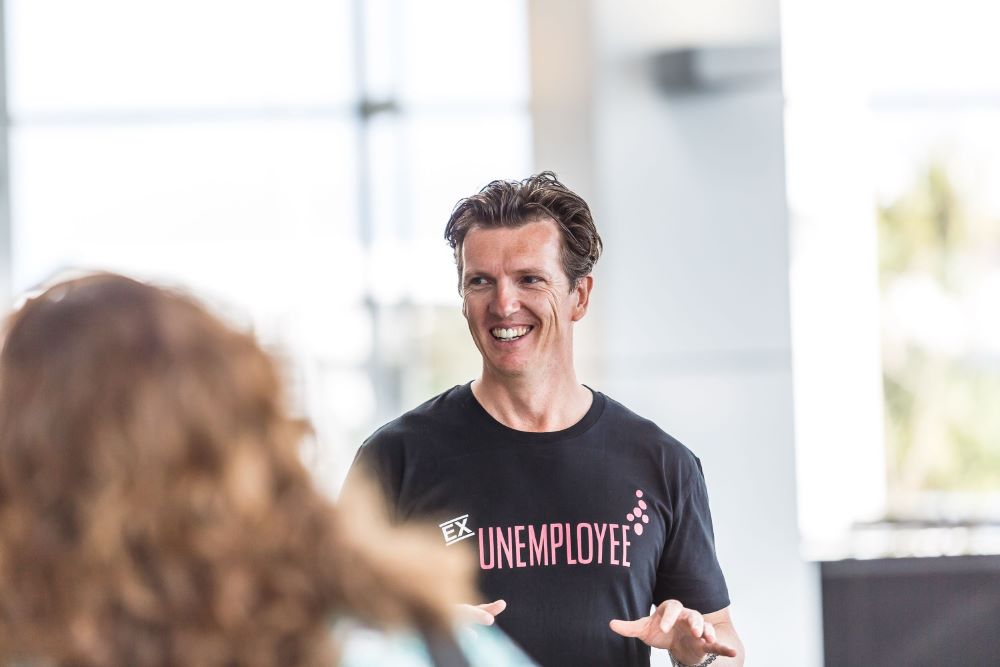
Growing Globally During COVID with Education Disruptor, Joy Business Academy
Paul Spain talks with James Coddington of Joy Business Academy (international education disruptor) about revenue falling off a cliff with the onset of COVID and how his tech startup has recovered and now thrives in a global market.
Listen to the Podcast here:
Special thanks to organisations who support innovation and tech leadership in New Zealand by partnering with NZ Tech Podcast:
Umbrellar Connect
Sumo Logic
HP
Samsung
Vodafone NZ
Spark NZ
Vocus
Gorilla Technology

The World’s Smartest Drink
Many of us covet flow in our busy lives, that optimum state when your brain is focused, and you are able to create magic at work, in your studies, or at home. Various coffee and energy drink brands have built their fortunes on the back of this need for flow. Though, as we are finding out now, those aren’t the most optimal beverages to be addicted to and can have adverse effects over the years. Angus Brown started questioning this a few years ago. “As a student that hardly drank any caffeine myself, selling energy drinks didn’t sit well with me. I started thinking if we could create a brain drink. What would a natural and healthy brain drink look like? Could we create something that helps with stress or flow while also protecting your cognitive function in the long term?”
It took Angus and his co-founder Zac five years of working with internationally recognized neuroscientists and food technologists to develop a patented formula that aids mental clarity in moments of pressure. Their answer was Ārepa. Made from NZ sourced extracts of pine bark and blackcurrants, Ārepa is part of a small but fast-growing natural smart drink category for people that want to feel less wound up and more in-the-zone. Their drink is currently sold online in speciality stores, cafes, health food stores, and New World supermarkets.
In the episode, we talk about:
- Foodbowl, what is it and how it helped Angus in his journey.
- The Ārepa journey, why it took them so long to get to market, and why that’s not a bad thing!
- Importance of working with scientists and conducting clinical trials to support claims.
- Does Ārepa work and the customer feedback they’ve received.
Listen to the Podcast Here:
Try Ārepa for yourself by taking part in our giveaway to win a week-long supply. All you have to do is leave a small review for Kiwi Foodcast on Apple Podcasts or over on the Kiwi Foodcast facebook page. Entries close 30 November 2020.
Learn more about Ārepa at www.drinkarepa.com
Quotes:
“In our early days we spoke to a British scientist who was a renowned leader in the world of nootropics. It took us three months just to design the brief for the product, the formulation we wanted him to design.”
“Essentially, we wanted to develop a formula that could increase mental performance. It had to be natural, free of caffeine, be able to reduce stress and anxiety, be good for the brain now and in the future and as if that wasn’t hard enough could you please also ensure one of the ingredients was from New Zealand so that we have a unique story to tell and can integrate into the supply chain.”
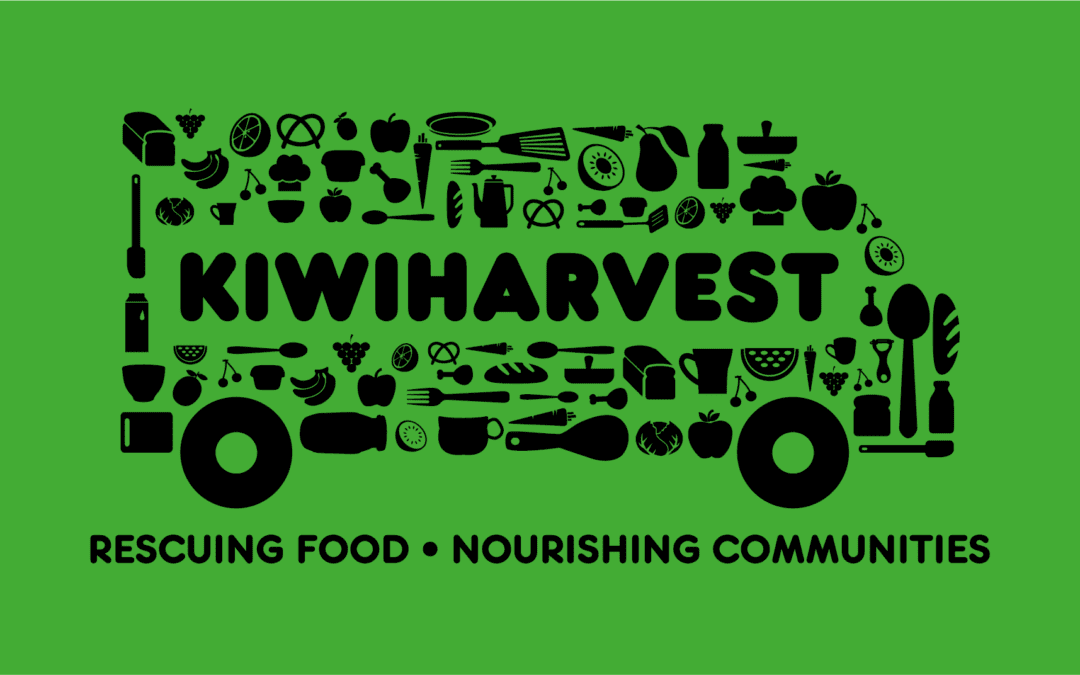
The outrageous waste of food: Deborah Manning, Kiwi Harvest
Every year New Zealand food industry sends 103,000 tonnes of food waste to landfill. Some 60% of that food going to landfill is edible. Burying food (often in its plastic and foil packaging) is an environmental disaster. It needlessly contributes to greenhouse gas emissions – and squanders the resources used to produce and transport that food, including water, land, energy, labour, and capital. If that sound outrageous to you, then thank goodness Deborah Manning is doing something about it. Deborah is a qualified lawyer and physiotherapist, who founded KiwiHarvest in 2012. The charity collects edible food destined for landfill and distributes it to food banks and social agencies to share with those who need it most. She spoke to Vincent about the need to redesign the food system.
Hear the Podcast Here:
About Deborah and Kiwi Harvest
Deborah has worked in the public health system, various law firms and is an invited lecturer at the University of Otago as well as a member of the Board of Advisors of the University of Otago Legal Issues Centre (UOLIC). Deborah is the co-chair of New Zealand Food Waste Champions 12.3 – a coalition of 12 Champions from New Zealand’s food supply chain who are committed to halving food waste by 2030 (Sustainable Development Goal Target 12.3) and being a leading voice in advocacy, strategy and education on food waste issues.
Find out more about Kiwi Harvest here.
And discover some mind-blowing data about food waste at Love Food Hate Waste
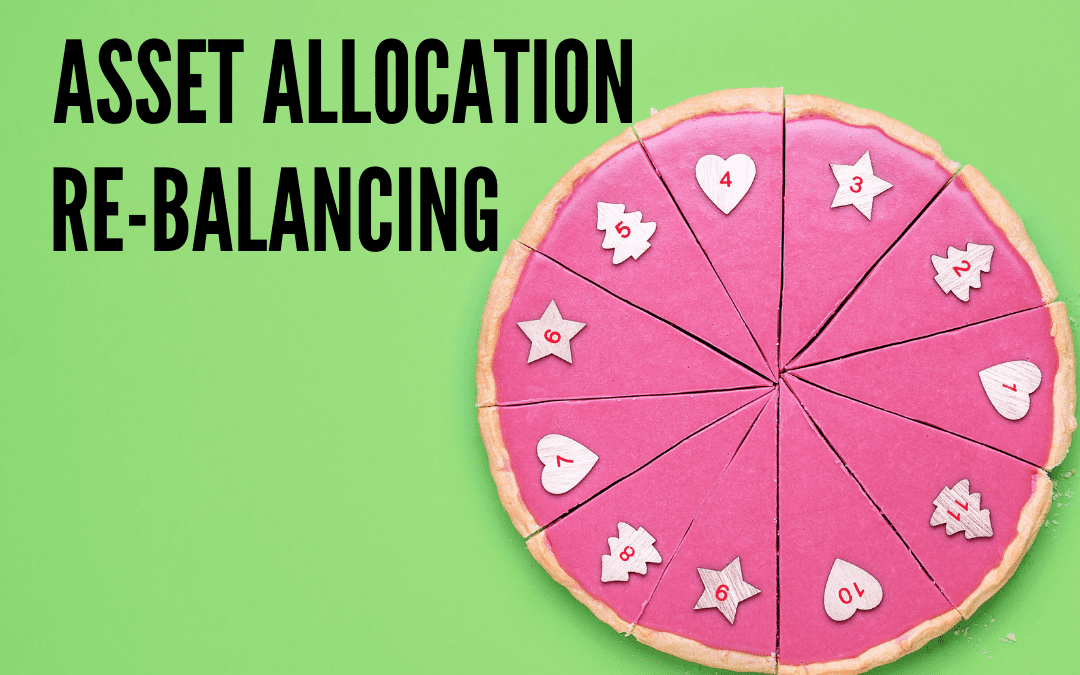
The Investors Ultimate Weapon of Creation / Rupert Carlyon
I’m joined by Rupert Carlyon, CEO of Kiwisaver provider Kōura, to discuss how to bake your financial pie and stick to the recipe, and why your asset allocation shouldn’t be one size fits all.
When Rupert Carlyon, CEO of Kiwisaver fund, Kōura, tells me that “asset allocation is something near and dear to my heart” my first instinct is to laugh out loud – how could something so boring be so good?
If buying and selling flashy individual stocks is the weekend Tesla joyride side of investing, “asset allocation” sounds more like commuting to work in a Toyota corolla. My morning commute is not, by any means, near and dear to my heart.
But I wanted to hear him out.
Carlyon’s built a Kiwisaver scheme which upends the simplistic idea of assets falling into three different classes — conservative, balanced and growth. Just as being ‘conservative’ doesn’t mean you agree with every National Party policy, the Kiwisaver industry has survived for too long now dividing people along crude party lines.
Kōura’s online advice tool helps place people across the spectrum of risk profiles, so naturally, as time passes, so does the way you’re invested.
Definition: Asset allocation is a simple concept really – It’s the implementation of an investment strategy, designed to to balance risk and reward by adjusting the percentage of each asset in an investment portfolio. The assets may be cash / fixed interest / property or shares. Each asset type has different characteristics like including volatility (how much is it going to change in value), returns (how much are you going to be rewarded for your risk over time) and liquidity (the ability to convert the asset into cash).
“As much as it might not feel like it for some people, Kiwisaver is an investment. It’s not set and forget. If you’re going to be retiring at 65, by 45 you should already be reconsidering asset allocation,” said Rupert.
Similarly, asset allocation is an important concept for all investors to understand as you slice up your own pie. What is your risk appetite now? What about five years from now? What proportion of your overall portfolio will go to high risk but high return investments like shares? How much toward things like bonds and well diversified exchange traded funds?
Once you’ve determined how you’d like to divvy up the pie, you need to build a proper strategy and stick to it. The pie you made six months ago might look considerably different to the one you have now, particularly as different parts of the portfolio outperformed and outgrew others.
This is where the idea of rebalancing comes in.
Rebalancing is the act of skimming off the top of some of the elite performers in your portfolio, and putting some of those earnings into parts that might not have done as impressively. It’s a way to keep your investment strategy consistent and strategic, which is highly likely to correlate to long term success.
It’s counter intuitive for most to murder your darlings however.
“Do you really think you should have 99% of money in Tesla? I don’t think you want your whole livelihood based on Elon Musk’s next tweet.”
Rebalancing and asset allocation may not sound like the world’s sexiest conversation topics, but it’s incredibly sensible if not for this very simple reason: When investing seriously, you need to have a strategy, and this is as bullet proof as they come.
Disclaimer: Koura Wealth is a partner of the NZ Everyday Investor and has contributed financially towards the podcast to support content designed to empower everyday investors.
_________________________________________________________________
The NZ Everyday Investor is brought to you in partnership with Hatch. Hatch, let’s you become a shareholder in the world’s biggest companies and funds. We’re talking about Apple and Zoom, Vanguard and Blackrock.
So, if you’re listening in right now and have thought about investing in the US share markets, well, Hatch has given us a special offer just for you… they’ll give you a $20 NZD top-up when you make an initial deposit into your Hatch account of $100NZD or more.
Just go to https://hatch.as/NZEverydayInvestor to grab your top up.
__________________________________________________________________
Like what you’ve heard?
You can really help with the success of the NZ Everyday Investor by doing the following:
1- Tell your friends!
2- Write a review on Facebook, or your favourite podcast player
3- Help support the mission of our show on Patreon by contributing here
4- To catch the live episodes, please ensure you have subscribed to us on Youtube:
5- Sign up to our newsletter here
NZ Everyday Investor is on a mission to increase financial literacy and make investing more accessible for the everyday person!
Please ensure that you act independently from any of the content provided in these episodes – it should not be considered personalised financial advice for you. This means, you should either do your own research taking on board a broad range of opinions, or ideally, consult and engage an authorised financial adviser to provide guidance around your specific goals and objectives.
_____________________________________________________________________________
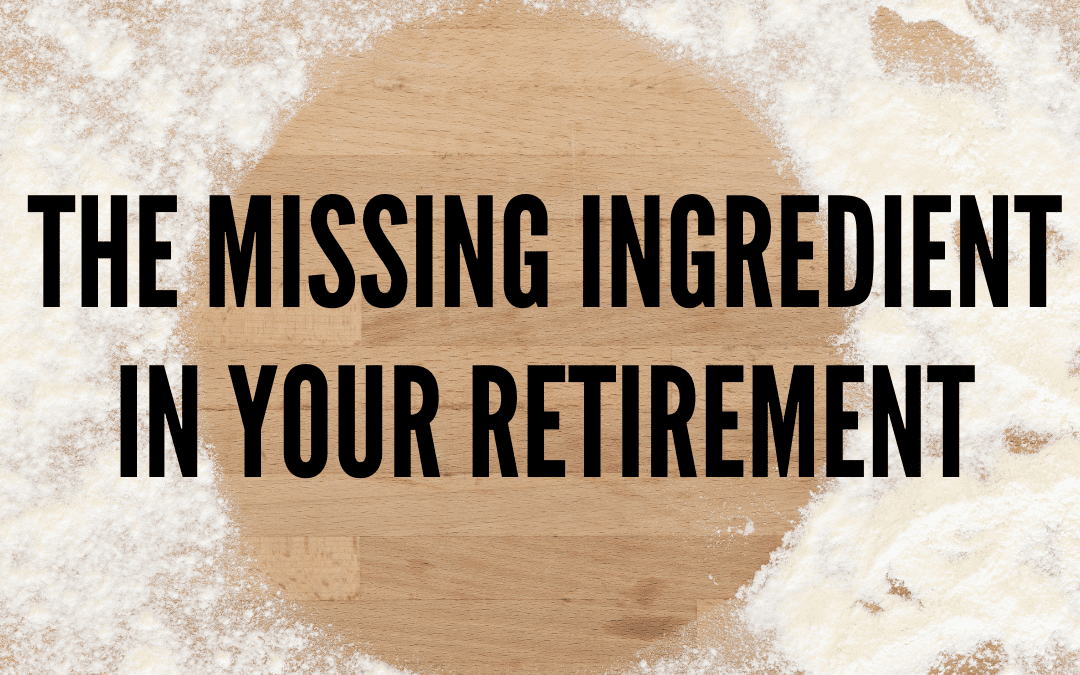
Asset allocation – Digital Advice / Rupert Carlyon
Neglecting financial advice can cost you a fortune in retirement; FSC study
Kōura’s Rupert Carlyon joins the NZ Everyday Investor to discuss the role of digital advice in helping give more Kiwi’s a leg up with their investments, why it doesn’t mean traditional advice is done for, and look at the often neglected $20,000 and below Kiwisaver balance holder.
While most people in the financial services industry can hand on heart tell you that their advice leads to better outcomes for their clients, it’s often more difficult to prove . Recent data from the Financial Services Council brought this idea from opinion, into the realm of hard fact.
According to their research, based on more than 2,000 people across New Zealand, those that received financial advice had a 50% larger Kiwisaver balance.
It’s an amazing statistic, but an unsurprising one for those working day to day in the industry. Still, the harsh reality is that often those who are ‘already on their way’, seem to be the recipients of good advice.
“It basically doesn’t make sense for a financial advisor to take on a client with lower savings,” says Rupert Carlyon.
Investment advisors often (but not always) earn revenue by the amount of assets under management. There aren’t sufficient market forces to make it worth the while for a high-street financial adviser therefore to take on a client with a small Kiwisaver balance.
What is financial advice?
Advice, as Rupert understands it, can be divided into two separate parts.
The first being the asking of questions. What is your specific financial situation? How much are you currently contributing to your investments, and what is your ultimate end game?
From there, an adviser has the foundations to give catered financial wisdom based on a client’s specific circumstance.
For Rupert, who’d seen the rise of robo-advice overseas, he realised that going digital was the best way to capture the broad spectrum of the New Zealand public who were failing to get advice.
Their digital tool is built on the same methodical steps that a human financial adviser would take when assessing a client’s financial situation, before generating a solution catered to them. For many, the realisation that they’re less prepared for the retirement that they had dreamed of ,has become a consistent come-to-Jesus moment.
“The biggest piece of feedback we get from people using our tool has been the surprise of seeing how much they’ll actually be getting on a weekly basis in retirement,” said Carlyon.
Often we focus on the amount – $1m, $2m, $500k, $10m – everyone has an opinion on this but what does that lump sum of money actually mean for you?
Why digital advice could be a game changer for NZ’s under-advised.
Kiwisaver has been a wildly successful means to bring the broader spectrum of New Zealanders into the world of investment, but there has been some apathy in many people’s engagement with the retirement product. According to a September Westpac survey, only one in four people aged 18-24 know what type of KiwiSaver fund they are in.
“We’re hoping, with digital advice, we’re giving a whole new world of people advice they wouldn’t have otherwise had, which enables them to make better financial decisions,” said Rupert.
While the show’s host may be a authorised financial adviser, does the advent of ‘digital advice’ make him and his colleagues in the industry want to run for the hills and become real estate agents with outgoing MP, Paula Bennett? Short (and long) answer, no.
“In March when everybody is watching their investments drop 10’s of thousands of dollars, they’ll feel like they need someone to call,” said Carlyon.
Digital financial advice is still in its very early stages in New Zealand, with only a handful of FMA accredited products available to common Kiwis, but the benefits are undeniable.
Despite the benefits, New Zealand doesn’t have the money, nor the will, to have every single New Zealander receiving support from a human financial adviser. Digital advice however, may be the country’s best answer to filling that gap.
Asset allocation – the investors secret weapon!
When Rupert Carlyon, CEO of Kiwisaver fund, Kōura, tells me that “asset allocation is something near and dear to my heart” my first instinct is to laugh out loud – how could something so boring be so good?
If buying and selling flashy individual stocks is the weekend Tesla joyride side of investing, “asset allocation” sounds more like commuting to work in a Toyota corolla. My morning commute is not, by any means, near and dear to my heart.
But I wanted to hear him out.
Carlyon’s built a Kiwisaver scheme which upends the simplistic idea of assets falling into three different classes — conservative, balanced and growth. Just as being ‘conservative’ doesn’t mean you agree with every National Party policy, the Kiwisaver industry has survived for too long now dividing people along crude party lines.
Kōura’s online advice tool helps place people across the spectrum of risk profiles, so naturally, as time passes, so does the way you’re invested.
Definition: Asset allocation is a simple concept really – It’s the implementation of an investment strategy, designed to to balance risk and reward by adjusting the percentage of each asset in an investment portfolio. The assets may be cash / fixed interest / property or shares. Each asset type has different characteristics like including volatility (how much is it going to change in value), returns (how much are you going to be rewarded for your risk over time) and liquidity (the ability to convert the asset into cash).
“As much as it might not feel like it for some people, Kiwisaver is an investment. It’s not set and forget. If you’re going to be retiring at 65, by 45 you should already be reconsidering asset allocation,” said Rupert.
Similarly, asset allocation is an important concept for all investors to understand as you slice up your own pie. What is your risk appetite now? What about five years from now? What proportion of your overall portfolio will go to high risk but high return investments like shares? How much toward things like bonds and well diversified exchange traded funds?
Once you’ve determined how you’d like to divvy up the pie, you need to build a proper strategy and stick to it. The pie you made six months ago might look considerably different to the one you have now, particularly as different parts of the portfolio outperformed and outgrew others.
This is where the idea of rebalancing comes in.
Rebalancing is the act of skimming off the top of some of the elite performers in your portfolio, and putting some of those earnings into parts that might not have done as impressively. It’s a way to keep your investment strategy consistent and strategic, which is highly likely to correlate to long term success.
It’s counter intuitive for most to murder your darlings however.
“Do you really think you should have 99% of money in Tesla? I don’t think you want your whole livelihood based on Elon Musk’s next tweet.”
Rebalancing and asset allocation may not sound like the world’s sexiest conversation topics, but it’s incredibly sensible if not for this very simple reason: When investing seriously, you need to have a strategy, and this is as bullet proof as they come.
_________________________________________________________________
The NZ Everyday Investor is brought to you in partnership with Hatch. Hatch, let’s you become a shareholder in the world’s biggest companies and funds. We’re talking about Apple and Zoom, Vanguard and Blackrock.
So, if you’re listening in right now and have thought about investing in the US share markets, well, Hatch has given us a special offer just for you… they’ll give you a $20 NZD top-up when you make an initial deposit into your Hatch account of $100NZD or more.
Just go to https://hatch.as/NZEverydayInvestor to grab your top up.
__________________________________________________________________
The NZ Everyday Investor would also like to acknowledge the support of kōura.
Most people fixate on just fees or historical returns when trying to choose a KiwiSaver fund. But professionals know there’s the third, arguably more essential component to consider – asset allocation. kōura’s digital advice tools will build you a KiwiSaver portfolio that has the perfect asset allocation just for you. Of course you could also just choose your own KiwiSaver portfolio with them too. Give them a try and see what your ideal KiwiSaver asset allocation looks like for you.
___________________________________________________________
Like what you’ve heard?
You can really help with the success of the NZ Everyday Investor by doing the following:
1- Tell your friends!
2- Write a review on Facebook, or your favourite podcast player
3- Help support the mission of our show on Patreon by contributing here
4- To catch the live episodes, please ensure you have subscribed to us on Youtube:
5- Sign up to our newsletter here
NZ Everyday Investor is on a mission to increase financial literacy and make investing more accessible for the everyday person!
Please ensure that you act independently from any of the content provided in these episodes – it should not be considered personalised financial advice for you. This means, you should either do your own research taking on board a broad range of opinions, or ideally, consult and engage an authorised financial adviser to provide guidance around your specific goals and objectives.
_____________________________________________________________________________


